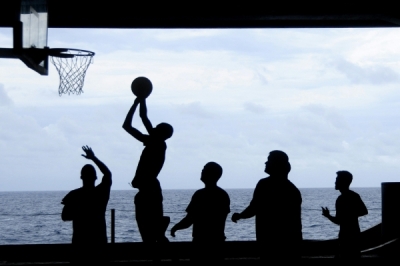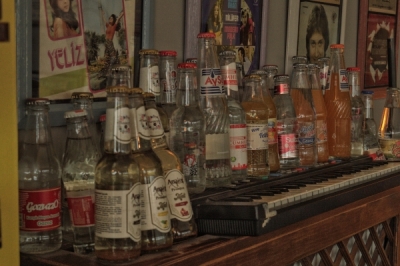During childhood, parents are the first and greatest influence in their children's lives. Already in adolescence, it is common to increase the desire for autonomy, making room for other figures, especially friends, to have increasing importance in their lives, influencing what they want to be, do, dress, tastes and habits.
The influence of friends is normal and, most of the time, good, but, in some situations, peers may not only set bad examples but, more seriously, pressure the teenager to do something he has never done or that he does not feel comfortable doing.
Adolescence is a period of discoveries and vulnerabilities. It's not always easy to see that one friend is pressuring the other to do something he wouldn't do. In addition, teenagers often succumb to pressure not to be left out of the group or to feel accepted by their peers.
Peer influence and selection
Most people in Western countries start consuming alcohol or other substances in their teens. This happens because drinking has been considered a way of socializing in this period of youth, in addition to alcohol being less stigmatized than tobacco and other illicit drugs. But there is also another important factor for starting consumption: peer pressure. Peer influence is an important process that can lead to changes in adolescents' attitudes and behaviors for better or worse.
A teenager can be influenced directly, when one of his peers encourages him to do something, or through the perception of group behavior, when he does something that everyone else is doing to be accepted and maintain his status.
It is crucial to differentiate between peer influence and peer selection with regard to alcohol consumption. Peer influence occurs when an individual is exposed to the behavior of friends who already consume alcoholic beverages, which can lead the individual to start drinking as well. This can be influenced by peer pressure or simply observing their behavior. In other situations, the opposite may occur, that is, the individual chooses to be with friends who have behaviors similar to their own, including alcohol consumption, which is called “peer selection”. In this case, the individual who already consumes alcohol or has the desire to consume seeks friends who share this attitude.
Peer pressure
Studies (2) show that peer pressure increases involvement in risky consumption practices, such as drinking. Adolescents in the maturation phase, for example, are subject to various peer influences. At this stage, the body is changing and, consequently, the physical appearance can make them feel rejected, creating a very strong need for acceptance. This need, in turn, can make consuming alcohol perceived as a condition to be better seen by the group.
Other risk factors also contribute to a greater risk of involvement with alcohol and other drugs at an early age, such as lack of parental monitoring, history of drug and other substance use in the family, as well as hyperactivity and impulsivity in childhood.
It is important to reinforce that peer pressure occurs more frequently among young people and adolescents, but research (1) also shows that it can affect people throughout their lives, including in adulthood.
Is there friendly pressure?
It is necessary to be aware because, in many cases, peer pressure to drink alcohol is described as “friendly”, making the individual not feel that it is “pressure”, but to perceive it only as friends who encourage him to drink, as in a game.
On the other hand, research (1) shows that some people who do not drink see “pressure” in a more aggressive, unpleasant, intimidating and even threatening way.
How to deal with the pressure to drink?
According to research carried out with university students (2) who do not drink, the main strategy to escape pressure is to avoid consumption without openly declaring their choice not to drink. There are groups that report giving in to pressure at first to be accepted, but then suspend consumption.
Some interviewees reported the need to justify their decision not to drink alcohol by giving an “acceptable” reason to their peers. Among the acceptable reasons to relieve pressure, gain acceptance and avoid losing social status in the group are: detox diet, driving, medical issues or taking antibiotics and, in the case of women, pregnancy.
If you don't drink, for whatever reason, are uncomfortable with peer pressure but can't say no, seek help from someone you trust to share the problem with and look for possible solutions.











